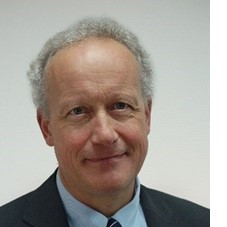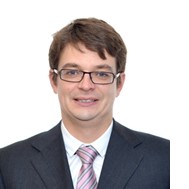Develop the skills and approach of a KE professional in the Social Sciences, Humanities and the Arts (SSHA) sector
Training outcomes
Discuss the different types of ‘intellectual assets’ possessed by researchers in SSHA
Understand the drivers for knowledge exchange in the sector
Understand the nature of the third-party relationships that help facilitate exchange and impact
Know how value is captured and ways of measuring success
Develop best practice in structuring, incentivising and resourcing the activity
The course also focuses on networking, providing a valuable platform to meet peers, discuss best practice, and interact with the course team and other contributors.
PLEASE NOTE: There may be a requirement for delegates to undertake some pre-course work/reading before the course begins.
Who should attend?
-
Relevant job titles: Relevant to anyone working in KE for SSHA
-
Relevant sectors/organisations: KE professionals in Social Sciences, Humanities & The Arts
-
Experience needed: Early-stage career (0-3 years) or people with longer experience in KE but recently moved into this sector
-
Supporting courses: None required
-
Other: Following this course, KE practitioners may be interested in the following courses; Business Development, Developing Strategic Partnerships, NVC1 and NVC2. Participants may also like to join the SSHA SIG
Event description
In the past, it's been assumed that Knowledge Exchange in SSHA is merely a subset of more general KE activity, but this approach leaves the discussion dominated by case studies in science and an emphasis on ‘hard’ IP. SSHA involves a wider range of IP, of engagement and knowledge exchange activities, and of eventual impacts in the wider world. The growing community of KE professionals across Europe is finding new ways to build relationships between SSHA researchers and businesses, public organisations and communities. We have consulted widely with senior SSHA professionals across Europe (including the UK) to find out the types of issues faced and topics that would be useful. We then sought practitioners who could speak with authority and from personal experience. The programme includes contributions from several countries and reflects (some of) the diversity of institutions and partnerships in SSHA.
THIS COURSE IS ORGANISED IN PARTNERSHIP WITH ASTP-PROTON
Course Directors
Andrew Wray
 Andrew has worked in science communication and business for 20 years, initially in academic publishing, and for the past 7 years as Knowledge Exchange Manager at the University of Bristol. He directs the strategy and management of funds for the economic and social impact of research across all disciplines including Impact Acceleration Accounts and HEIF funds. In addition, Andrew guides academic teams in developing impact strategies for their research programmes and creating collaborative partnerships with companies, charities and government organisations. Since 2011 he has led Bristol’s support for the AHRC funded REACT Knowledge Exchange Hub comprising 5 universities and the Pervasive Media Studio in Bristol. For REF 2014 he guided the impact submissions for philosophy, social policy and physics. Andrew manages the ESRC Impact Acceleration Account in Bristol and works with academics on knowledge exchange and commercialisation projects across the arts, humanities and social sciences.
Andrew has worked in science communication and business for 20 years, initially in academic publishing, and for the past 7 years as Knowledge Exchange Manager at the University of Bristol. He directs the strategy and management of funds for the economic and social impact of research across all disciplines including Impact Acceleration Accounts and HEIF funds. In addition, Andrew guides academic teams in developing impact strategies for their research programmes and creating collaborative partnerships with companies, charities and government organisations. Since 2011 he has led Bristol’s support for the AHRC funded REACT Knowledge Exchange Hub comprising 5 universities and the Pervasive Media Studio in Bristol. For REF 2014 he guided the impact submissions for philosophy, social policy and physics. Andrew manages the ESRC Impact Acceleration Account in Bristol and works with academics on knowledge exchange and commercialisation projects across the arts, humanities and social sciences.
Christoph Köller
 Christoph is a co-founder and managing partner of Görgen & Köller GmbH (G&K), a science consultancy company based in Germany. He especially supports research institutions and SMEs which intend to create impact of their research results in society and industry. He has developed and applied innovation evaluation and management methodologies as well as innovation processes which find widespread use by his clients. Christoph has conducted various projects in the field of innovation management and knowledge & technology transfer with major research facilities from Fraunhofer Society, Helmholtz Association of German Research Centres, Leibniz Association, and universities. He is currently engaged in projects focusing on the impact of humanities and social sciences in Germany and Europe. Christoph is frequently invited as an expert or speaker to workshops and symposia for innovation management and knowledge transfer, especially on the topic of knowledge transfer from humanities’ & social sciences’ research. Furthermore, he belongs to several pools of experts and evaluators on knowledge transfer from research organisations, also focusing on the transfer from humanities and social sciences at EC, United Nations Economic Commission for Europe (UNECE) and in Germany, Austria, and Finland. Christoph is member of ASTP-Proton (EUR), AUTM (USA), ISPIM (EUR) and TII (EUR). He recently established and leads a special interest group on social sciences and humanities valorisation at ASTP-Proton.
Christoph is a co-founder and managing partner of Görgen & Köller GmbH (G&K), a science consultancy company based in Germany. He especially supports research institutions and SMEs which intend to create impact of their research results in society and industry. He has developed and applied innovation evaluation and management methodologies as well as innovation processes which find widespread use by his clients. Christoph has conducted various projects in the field of innovation management and knowledge & technology transfer with major research facilities from Fraunhofer Society, Helmholtz Association of German Research Centres, Leibniz Association, and universities. He is currently engaged in projects focusing on the impact of humanities and social sciences in Germany and Europe. Christoph is frequently invited as an expert or speaker to workshops and symposia for innovation management and knowledge transfer, especially on the topic of knowledge transfer from humanities’ & social sciences’ research. Furthermore, he belongs to several pools of experts and evaluators on knowledge transfer from research organisations, also focusing on the transfer from humanities and social sciences at EC, United Nations Economic Commission for Europe (UNECE) and in Germany, Austria, and Finland. Christoph is member of ASTP-Proton (EUR), AUTM (USA), ISPIM (EUR) and TII (EUR). He recently established and leads a special interest group on social sciences and humanities valorisation at ASTP-Proton.
Mark Mann
 Mark is Innovation Lead, Humanities and Social Sciences at Oxford University Innovation. After a degree in Natural Sciences and a PhD in carbon nanotubes and electron emission, Mark continued as a Research Associate at Cambridge University Engineering Department, diversifying into nanotechnology, thin films, devices and displays. Whilst there he also undertook undergraduate teaching of both Physics and Electrical Engineering, project-managed UK government and EU-sponsored collaborative projects and undertook a variety of graduate and undergraduate teaching. In 2010, Mark left Cambridge to join the BBC’s Research & Development Department where he retrained as a software engineer and conducted research in music information retrieval, audio broadcasting, and mobile and second screen applications. His research then focussed on image processing, especially with regard to sport. He then moved into technology transfer, covering all the technology the BBC had to license before joining Oxford University Innovation as a Technology Transfer Manager in 2015.
Mark is Innovation Lead, Humanities and Social Sciences at Oxford University Innovation. After a degree in Natural Sciences and a PhD in carbon nanotubes and electron emission, Mark continued as a Research Associate at Cambridge University Engineering Department, diversifying into nanotechnology, thin films, devices and displays. Whilst there he also undertook undergraduate teaching of both Physics and Electrical Engineering, project-managed UK government and EU-sponsored collaborative projects and undertook a variety of graduate and undergraduate teaching. In 2010, Mark left Cambridge to join the BBC’s Research & Development Department where he retrained as a software engineer and conducted research in music information retrieval, audio broadcasting, and mobile and second screen applications. His research then focussed on image processing, especially with regard to sport. He then moved into technology transfer, covering all the technology the BBC had to license before joining Oxford University Innovation as a Technology Transfer Manager in 2015.
